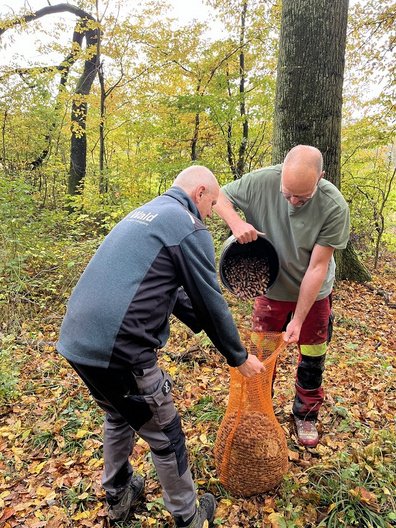Forest district manager Simon Walz is responsible for monitoring, documenting and recognizing the harvesting measures in his role as seed officer for the district. All harvesting measures are monitored and compliance with the origin and quality criteria is checked and documented. "A seamless monitoring process and proof of origin are crucial for certified and high-quality seed," explains Walz. The latter guarantees that plants from the trade can later be clearly traced back to the respective harvest year and the exact harvest stock - a central building block for a climate-stable forest of the future.
English oak is considered robust against heat and drought and ecologically valuable
The pedunculate oak is one of the so-called hope tree species in climate change. It is considered robust against heat and drought, deep-rooted and storm-resistant - characteristics that make it an important component of climate-stable mixed forests. It is also extremely valuable ecologically: more than 400 animal and insect species are directly or indirectly dependent on the oak.
This year, too, the high-quality seed from the Ludwigsburg district is suitable for other regions with similar climatic conditions - such as the warm valleys and Gäul landscapes around the central Neckar region, parts of the Swabian Alb and the neighboring hilly country. In addition to the forests in the Ludwigsburg district, the young plants can also make an important contribution to climate-stable forests in neighboring regions such as the Heilbronn, Enzkreis, Stuttgart and Neckar-Alb areas.
"With every acorn we put a piece of the future in the ground," emphasizes seed expert Simon Walz. "It is impressive how much life and adaptability there is in a single fruit - and how crucial care and control are in the selection of this seed for the forests of tomorrow."










